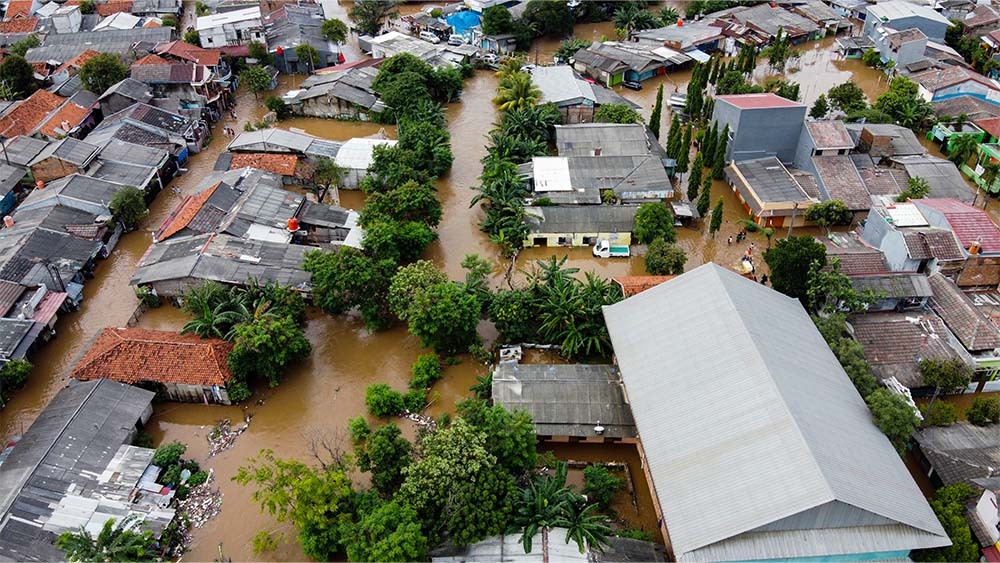
When Mother Nature lashes out with high winds, torrential rains and raging seas, not all communities feel the impact the same. Urban areas with newer homes, medical facilities and other infrastructure support may have higher chances of swift recovery compared to rural areas that do not have comparable access. However, cities are dependent on rural areas for their food, water and energy needs.
Thus, the success of any post-disaster intervention depends on a clear understanding of how the interdependency between urban and rural areas poses additional challenges to timely socioeconomic and ecological recovery.
Recognizing this challenge, the National Science Foundation (NSF) has awarded a Sustainable Regional Systems Research Networks (SRS RN) planning grant to an international team of researchers led by Dr. Debalina Sengupta, associate director of the Gas and Fuels Research Center in the Texas A&M Engineering Experiment Station.
“The grant calls for an all-hands-on-deck convergent approach to solve societal challenges,” said Sengupta. “Being selected in the initial cohort of the recipients certainly establishes our collaborative team’s capabilities in conducting sustainability research.”
The planning grant will allow the research team to define research questions, outcomes and come up with a roadmap to achieve goals through workshops, webinars and stakeholder partnerships that potentially include members from municipalities, federal governments, educational institutions and ecological advocacy groups.
As a starting point, they will study the impact of hurricanes on communities that are in close proximity to regions of high ecological value, like river delta regions. In particular, the regional systems in consideration are disaster-prone areas within Texas, Louisiana and Mississippi and the Sunderbans, India. Next, Sengupta and her team will draft possible technological solutions to facilitate the recovery of these regions with strained interconnected food, energy and water systems.
“Integrating the restoration and recovery of ecosystems and ecological processes into how regional systems both prepare for and respond to natural disasters is key to the mutual health of the natural world and the human communities that rely on it,” said Seth Blitch, co-principal investigator on the planning grant and the director of coastal and marine conservation at The Nature Conservancy of Louisiana.
Although the planning grant will focus on sustainable solutions for hurricane-related disaster management and preparedness impacting different communities, the work and the lessons learned are potentially applicable to other natural disasters, including winter freeze, earthquakes, wildfires and floods.
“Our institute is supporting the development of modular process systems for flexible, distributed production,” said Dr. William Grieco, co-principal investigator on the planning grant and chief executive officer at the RAPID Manufacturing Institute. “We believe that these same platforms can be applied to disaster relief and resilience enhancement to ensure supplying food and clean water in the developed and developing world.”
The researchers noted that although the award is a planning grant, it recognizes highly competitive research at the NSF-systemwide level involving nine directorates, including earth sciences, mathematics, cognitive sciences, engineering and international science and engineering.
“Having witnessed Katrina and its devastation firsthand back when I started graduate school, finding resilient solutions has always driven me as an engineer,” said Sengupta. “We are very grateful to receive this highly prestigious award that will help in establishing regional system networks that go from grassroots to global scales while connecting a diverse set of factors to enhance systems’ resilience as a whole.”
The team has received nearly $150,000 in planning funds from the NSF, which has prioritized convergence research that merges ideas, approaches and technologies from diverse fields. The grant is preparing for the submission of a well-developed SRS RN proposal in a year, as well as sparking ideas for other national and international priority programs related to the food energy-water nexus in the context of disaster resilience.
Along with Sengupta, Blitch and Grieco, the other co-investigators on the grant are Dr. Lucy Mar Camacho from Texas A&M University-Kingsville, Dr. Carrlet “Beth” Stokes from Mississippi State University and Dr. Damien Ejigiri from Southern University. Collaborators on this project include national and international researchers from academia, industry and research labs, including Dr. Anamitra Anurag Danda, a world-renowned expert in the Sunderbans region, from the Observer Research Foundation and World Wildlife Fund, India.
Sengupta serves in the role of water energy food nexus coordinator for the Texas A&M Energy Institute at Texas A&M. Her research is focused on sustainability in process systems engineering. She has worked with the United States Environmental Protection Agency and is the author of two books on engineering sustainability. She has signed a memorandum of understanding with the Bengal Chamber of Commerce & Industry and regional stakeholders in India to work toward common goals of disaster resilience.
